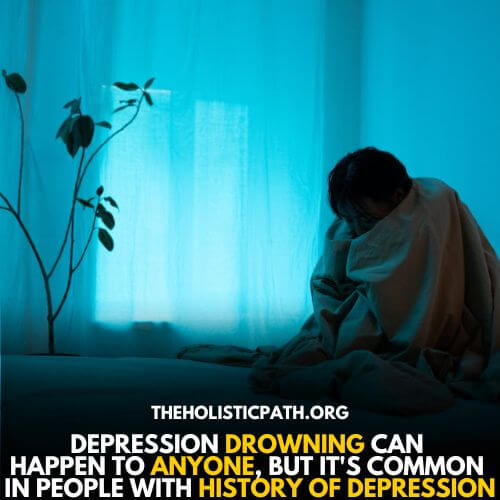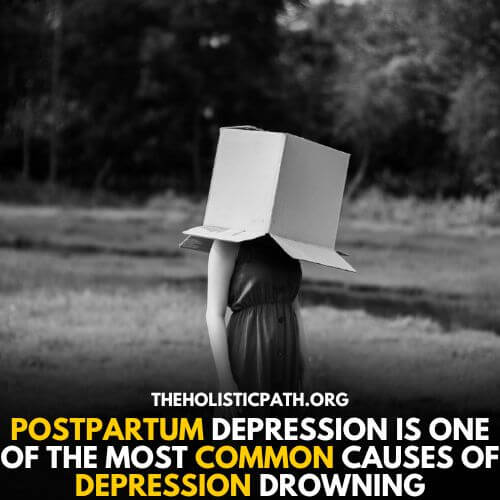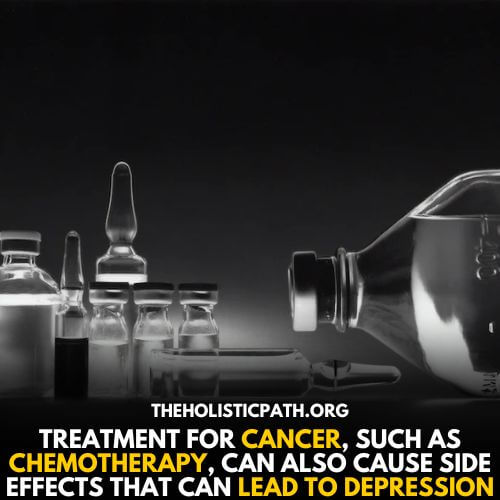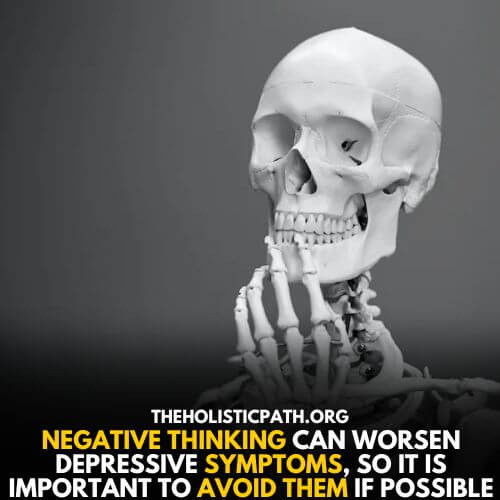It’s a scary feeling, depression. Like you’re being pulled under by an invisible force, struggling to stay afloat but slowly sinking. And no matter how hard you fight, you can’t seem to break free. You might not even realize you’re struggling until it’s too late.
Depression drowns people quietly and slowly.
It takes away their hope and desire to live. And it makes them feel like they’re all alone in the world. But depression doesn’t have to be a death sentence. The signs and symptoms of depression can be very subtle and easy to miss, especially if you are not familiar with them.
This article provides an overview of depression drowning, including what it is, how to identify it, and how to get help if someone you know is affected.
What Is Depression Drowning
Depression drowning is a term used to describe the feeling of being overwhelmed by depression. It can feel like you’re stuck in a never-ending cycle of sadness, fatigue, and negative thoughts. For some people, depression drowning can be so severe that it leads to suicidal thoughts or attempts.
It can be a very frightening feeling, and it can make it hard to function in day-to-day life.

Depression drowning can happen to anyone, but it’s more common in people who have a history of depression or other mental health conditions.
- Depression can be like drowning because it feels like you are being suffocated by your own thoughts and emotions.
- You feel like you can’t escape and that everything is too much.
- This can lead to feelings of hopelessness and despair, which can be extremely debilitating.
It is important to get help if you are feeling this way, as it is not something that you have to cope with alone.
Why Depression Makes You Feel Like You’re Drowning
When you’re depressed, it can feel like you’re stuck underwater, struggling to reach the surface. Every movement is an effort, and you can’t seem to catch your breath. Depression is more than just feeling sad – it’s a real, diagnosable mental illness that can make everyday activities seem impossible.
There are many factors that contribute to depression. For some people, it may be due to a chemical imbalance in the brain. For others, stressful life events or traumas may be to blame.
But in today’s world, there’s another factor that can play a role in depression: constant connectivity.
In the past, people had periods of downtime when they were disconnected from the outside world. But now, thanks to technology, we’re always connected – and that can be overwhelming.
We’re constantly bombarded with new information and stimuli, and we don’t always have time to process them all. As a result, we can become overloaded and overwhelmed, leading to feelings of depression.
Depression makes you feel like you are drowning because it can be all-consuming. It’s a trap that feels inescapable. Your depression creates negative thoughts and feelings that seem to spiral out of control, making it hard to focus on anything else.
The sadness, worthlessness, and hopelessness can make it hard to get out of bed each day, let alone face the world. And when you’re struggling just to keep your head above water, it’s easy to feel like you’re drowning. Depression is a serious mental illness that should not be taken lightly.
If you or someone you know is struggling with depression, please seek professional help. There are people who care and want to help you get through this. You are not alone.
Postpartum Depression Drowning
It’s been said that depression drowning is one of the most difficult things to recover from. Depression drowning is when you can no longer tell up from down, when you’re gasping for air but you feel like you’re already underwater.
It’s a feeling of being totally overwhelmed and hopeless. And it’s something that can happen to anyone, even if you’ve never experienced depression before.

Postpartum depression is one of the most common causes of depression drowning.
It’s estimated that 1 in 7 women will experience postpartum depression after having a baby. And while it’s often portrayed as a “baby blues” that will go away on its own, the reality is that postpartum depression can be a very serious condition that requires treatment.
When struggling with postpartum depression, it’s important to reach out for help. There are many resources available to help you get through this tough time.
If you’re feeling like you’re struggling to keep your head above water, don’t hesitate to reach out for help. There are people who care and want to help you get through this difficult time. You are not alone.
Signs And Symptoms Of Depression Drowning
Depression drowning is a real thing- and it’s more common than you might think. Here are some signs and symptoms to watch out for:
- Every day feels like a battle.
- You’re exhausted, but you can’t sleep.
- You’re constantly anxious and on edge.
- Your appetite has disappeared, or you can’t stop eating.
- Everything hurts, and you can’t find any joy in anything.
- You’ve lost interest in your hobbies and the things you used to love.
- You’re just going through the motions, trying to get through each day.
- You feel hopeless and helpless and like there’s no way out.
- Feeling restless or slowed down.
- Decreased energy or fatigue.
- Feelings of guilt, worthlessness, or helplessness.
- Difficulty concentrating, making decisions, or remembering things.
- Thoughts of death or suicide.
If this sounds like you, it’s important to get help. Depression is a serious illness, but it is treatable. There are many resources available to help you get the treatment you need. Don’t suffer in silence – reach out for help today.
5 Causes Of Depression Drowning
Depression is often caused by a combination of environmental and genetic factors. While the cause of depression is not fully understood, there are several theories about what may contribute to it. Some of the most common causes of depression drowning include:
1. Genetics:
One potential cause of depression is genetics. If one or both parents suffer from depression, their children are more likely to as well. This may be due to a combination of genetic and environmental factors.
For example, if a parent has depression and the family home is not particularly supportive or loving, the child may be more likely to develop depression.
2. Trauma:
Another possible cause of depression is a traumatic event or series of events. This could be something like the death of a loved one, divorce, or financial problems. People who have experienced trauma are more likely to develop depression than those who have not.
This is because the trauma can lead to changes in brain chemistry, as well as negative thinking patterns that can be hard to break out of.
3. Hormones:
Hormones play a vital role in regulating mood, and changes in hormone levels can often lead to depression. This is particularly common in women, who may experience depression during times of hormonal flux, such as during pregnancy or menopause.
In addition, some medical conditions that affect hormone levels, such as hypothyroidism, can also lead to depression. As a result, it’s important to be aware of the role that hormones can play in depression.
4. Life Events:
There are many different causes of depression, and it can sometimes be difficult to pinpoint the exact cause in any given individual. However, experts have identified a number of common factors that can contribute to the development of depression.
One of these is life events. Major life changes, such as divorce or loss of a job, can be extremely stressful and lead to depression. Similarly, the death of a loved one can also cause depression, especially if the person was close to the individual.
In such cases, it is often helpful to seek professional help in order to deal with depression.
5. Medical Conditions
Medical conditions can play a role in depression, as can changes in hormone levels, genetic predisposition, and life events. One medical condition that can lead to depression is called hypothyroidism. This occurs when the thyroid gland doesn’t produce enough hormones, and it can cause a number of symptoms, including fatigue, weight gain, and depression.

Another medical condition that can cause depression is cancer. Cancer can be both physically and emotionally draining, and it can also lead to changes in hormone levels. Treatment for cancer, such as chemotherapy, can also cause side effects that contribute to depression.
Finally, some medications used to treat other medical conditions can also cause depression. For example, beta-blockers, which are often used to treat high blood pressure, can cause depression in some people.
Prevent Depression From Leading To Drownings
Depression is a serious mental health condition that can lead to a range of negative consequences, including drowning. There are a number of ways that people can help prevent depression from leading to drowning. Some of the most important things that people can do include:
1. Recognize The Signs And Symptoms Of Depression.
Depression is a mental health condition that can cause a wide range of debilitating symptoms, including feeling like you are drowning. It is important to be able to recognize the signs and symptoms of depression so that you can get help if you are struggling.
Some common signs and symptoms of depression include feeling sad or hopeless, having low energy, experiencing changes in appetite or weight, having difficulty concentrating, feeling restless or irritable, and experiencing suicidal thoughts. If you are experiencing any of these symptoms, it is important to reach out for help.
2. Get Help If You Are Struggling With Depression.
If you are struggling with depression, it is important to seek out help from a mental health professional. Treatment for depression can include therapy, medication, or a combination of both.
It is important to find a treatment plan that works for you, and there is no shame in seeking out help. There is no need to suffer in silence.
3. Avoid Isolating Yourself From Friends And Family.
Depression can often lead people to isolate themselves from friends and family members. However, it is important to keep connected with the people who care about you.
Friends and family can provide support and love during difficult times. Spending time with loved ones can also help to combat loneliness and isolation which can worsen depressive symptoms.
4. Maintain A Healthy Lifestyle.
Maintaining a healthy lifestyle is important for everyone, but it is especially important for people who are struggling with depression. Exercise releases endorphins which can boost mood, and a balanced diet provides the nutrients necessary for good mental health.
Additionally, avoiding unhealthy habits such as smoking or drinking alcohol can be beneficial for people with depression.
5. Connect With Nature And Spend Time Outdoors.
Spending time outdoors has been shown to be beneficial for mental health, especially for people who are struggling with depression.
Connecting with nature can help to reduce stress levels and improve moods. Additionally, spending time outdoors in nature has been shown to increase creativity and satisfaction with life.
6. Seek Out Support Groups And Therapy For Depression.
Support groups and therapy are both valuable resources for people who are struggling with depression. Support groups provide an opportunity to connect with others who understand what you are going through, while therapy provides one-on-one support from a mental health professional.
Both of these resources can be immensely helpful in managing depressive symptoms.
7. Practice Positive Self-Talk And Self-Compassion.
Depression can be incredibly debilitating, but it is important to remember that you are not alone. There are many things you can do to improve your mental health, including practicing positive self-talk and self-compassion.
Positive self-talk is the practice of talking to yourself in a supportive and encouraging way. This can help you to feel better about yourself, even when you are struggling. Self-compassion is the practice of being kind and understanding towards yourself, even when you are experiencing difficult emotions.
Both of these techniques can be helpful in preventing depression from leading to the feeling of drowning.
8. Connect With Loved Ones Through Meaningful Conversation And Activities.
Another important way to prevent depression from leading to the feeling of drowning is to connect with loved ones through meaningful conversation and activities. Spending time with loved ones can help you feel supported and connected, which can be helpful in managing depressive symptoms.
It is also important to find activities that you enjoy doing with others, as this can help reduce feelings of isolation and loneliness.
9. Avoid Things That Can Worsen Depressive Symptoms.
There are some things that can worsen depressive symptoms. Certain substances or negative thinking patterns can worsen depressive symptoms, so it is important to avoid them if possible. It is important to be aware of these things and try to avoid them if possible.

Caffeine can also worsen anxiety and depressive symptoms, so try to limit your caffeine intake. If unavoidable, try to find ways to manage them effectively so they do not worsen your depressive symptoms.
10. Take Care Of Your Mental Health As Well As Your Physical Health.
It is important to take care of both your mental health and your physical health if you want to prevent depression from leading to the feeling of drowning. Maintaining a healthy lifestyle is essential for both aspects of your health, including exercise, a balanced diet, and plenty of restful sleep.
Taking care of your mental health is also important, and this can be done by seeking out support groups and therapy for depression as needed.
5 Treatments For People Who Have Experienced Depression Drownings
While there is no one-size-fits-all approach to treating depression, there are a variety of treatments that have been shown to be effective. If you are feeling overwhelmed or hopeless, it is important to reach out for help. Here are 5 treatments that might prove to be helpful if you have experienced depression drowning:
- Antidepressants: Selective serotonin reuptake inhibitors (SSRIs) are the most commonly prescribed antidepressants and are effective in treating moderate to severe depression. Tricyclic antidepressants (TCAs) are also effective in treating depression, but they can be dangerous because they can cause heart problems.
- Psychotherapy: Psychotherapy, or talk therapy, is a treatment in which a therapist helps a person talk about their feelings and thoughts. This type of therapy is effective in treating mild to moderate depression.
- Electroconvulsive therapy (ECT): ECT is a treatment in which electrical currents are passed through the brain to cause a seizure. This treatment is effective in treating severe depression and is used when other treatments have failed.
- Light therapy: Light therapy is a treatment in which a person sits under a bright light for a certain amount of time each day. This treatment is effective in treating seasonal affective disorder (SAD), a type of depression that occurs during the winter months.
- Cognitive behavioral therapy (CBT): CBT is a type of psychotherapy that focuses on changing the way a person thinks and behaves. This type of therapy is effective in treating moderate to severe depression.
Depression Drowning Quotes
Quotes related to depression drowning can provide a deeper understanding of the condition and its effects. Here are some quotes from people who have experienced depression drowning firsthand:
“It’s like being in a really deep hole and you can’t see a way out. It’s so dark and you’re so tired, and all you want to do is sleep and never wake up.”
“The pain is so great that you would do anything to make it stop. You feel like you’re drowning, like you’re suffocating, like there’s no air left in the world for you.”
“Depression is like being trapped under a heavy weight, and no matter how hard you try, you can’t break free.”
Conclusion
So there you have it: depression is like drowning. It’s a feeling of being overwhelmed, of being unable to escape or ask for help. It’s a sense of hopelessness and helplessness. If you’re struggling with depression, know that you’re not alone.
There are people who care about you and want to help. Seek out professional help if you need it, and don’t be afraid to ask for support from your friends and family. Take small steps every day to move towards a brighter future.
Depression doesn’t have to drown you. You can fight back and win.
References
Katrina B. Skalko. (2020). Drowning in Depression: A Reading of William Cowper’s “The Castaway.” The Journal of Undergraduate Research, 6(1), 19. https://digitalcommons.butler.edu/bjur/vol6/iss1/19/
Nelson, T., & Leavitt, S. (2012). Walking on Water When You Feel Like You’re Drowning: Finding Hope in Life’s Darkest Moments. Focus on the Family.
